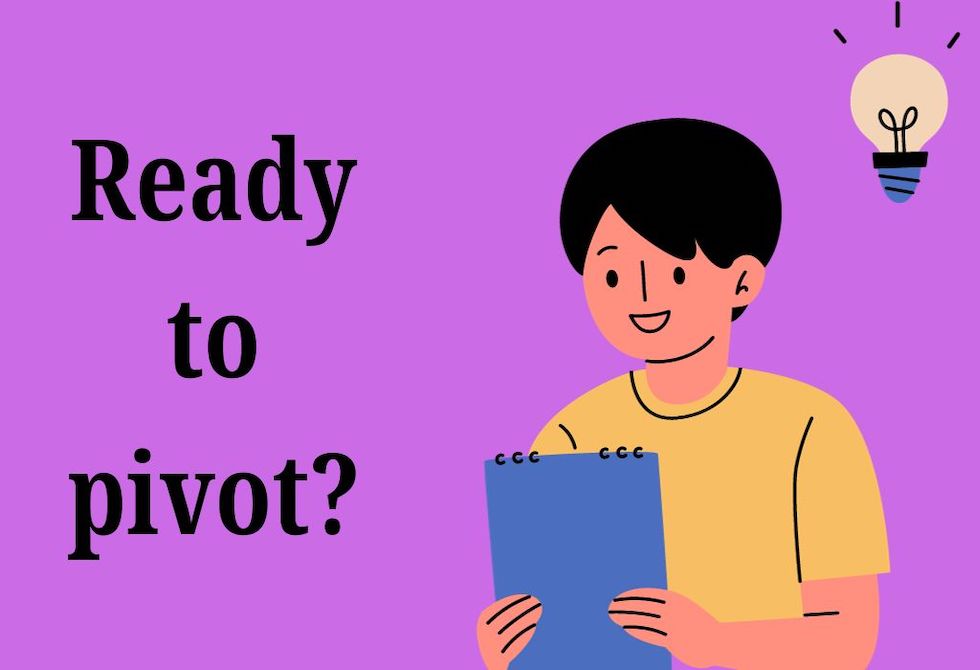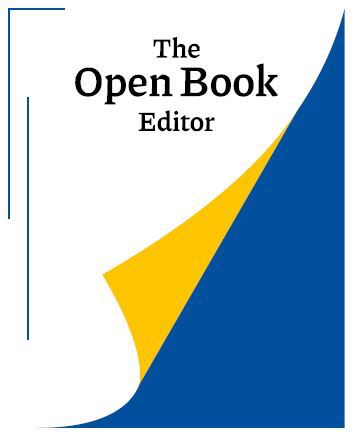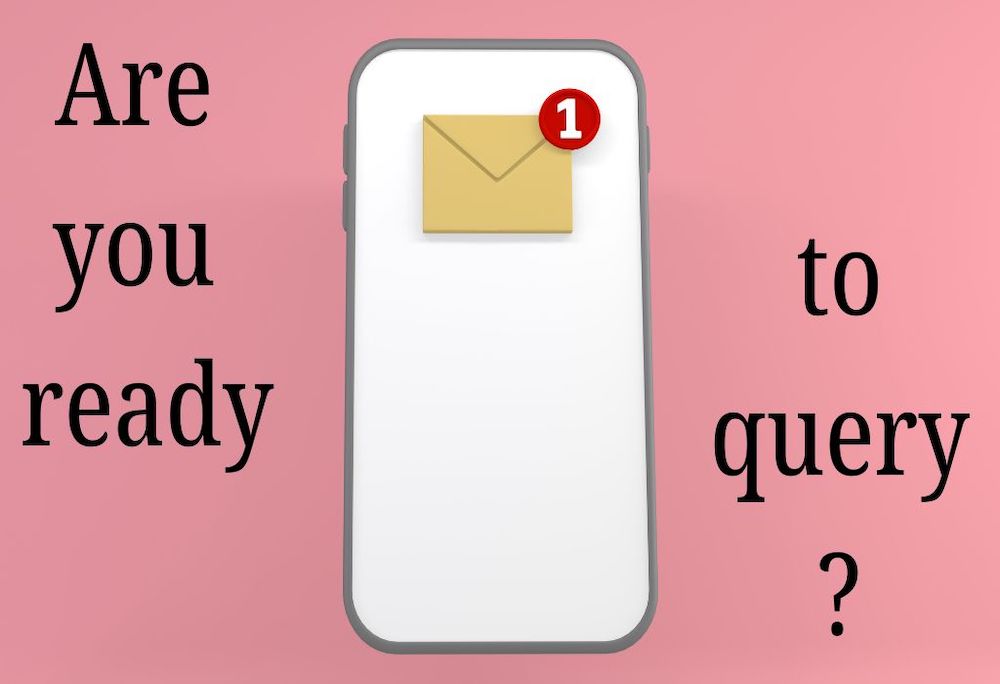Querying your book can be an exciting step in the writing journey. However, it’s hard to know sometimes when you’re ready to query. If you start reaching out to agents too soon, you may get lost in the slush pile. Likewise, waiting too long, over-editing your book, or putting it off because you never feel ready to query can be detrimental to your self-esteem as a writer (not to mention, you’ll never get your book out there).
It can feel like a fine (and frustrating) line between ready-to-query and not-so-much. So, how do you know if you’re ready to query or if you need to step back and take more time? Let’s find out!
Have you done multiple rounds of edits?

No matter how good you think your manuscript is, you should never send an unedited book to a literary agent. Instead, expect to go through several editing rounds before you’re ready to query agents. Once you finish your first draft, set aside your manuscript to ‘rest’ before tackling self-edits. You might think there aren’t many changes to be made, but you’ll be surprised at how much you notice when you come back to it a month later with fresh eyes.
After you’ve done a few rounds of self-edits, you’re ready to pass it on to beta readers! If you can, consider hiring a professional book editor, too—at least for an editorial assessment. During an editorial assessment, a book editor will check for plot holes and other big picture issues you may have missed. (Ask us about a sample edit if you’re not sure!)
But how do you know when you’re ready to stop editing (and ready to start the query process)? Trust your instincts! Usually, you’ll be able to tell if you’re just tweaking as opposed to making useful changes that improve your book. If you’re really not sure, take another break from your manuscript and come back to it a few weeks later. If you only notice a smattering of surface-level issues, then you may be ready to query agents!
Do you know your audience and genre?

Agents are swamped with dozens of query letters every week. They don’t have the time to try to deduce your genre or audience for you. Before you’re ready to query, you need to know your book’s genre, be familiar with similar published works, and understand what makes your novel marketable.
Comparable titles, or “comp titles”, are one of the best ways to show an agent that you understand the current market, as well as your audience and genre. Comp titles are similar books to your own. Think of it this way: which books would your book sit alongside in a bookstore or library? If you don’t have a few comp titles to mention in your pitch letter, then you aren’t ready to query an agent just yet. Here are a few suggestions for finding comp titles:
- Read widely in your genre, focusing on more recent books (published in the last few years).
- Search for books that have similarities to yours. This can mean a similar theme, tone, setting, or subject.
- Aim for commercially successful books, but not mega bestsellers. With the latter, you may look like you’re trying to copy their success.
- It’s possible to use a popular TV show or film as a comp title, but make sure you include one other comp title that is a book.
Have you prepped your query packet?

A query packet isn’t something you can put together quickly. You need to take your time crafting your cover letter, elevator pitch, and synopsis (and make sure your manuscript is properly formatted, too).
You’ll have a limited amount of time to make an impression and snag an agent’s interest. Like we said above, agents receive A LOT of query letters! You want to make sure your query letter hits the right note and stands out from the slush pile, so take your time getting your pitch packet just right.
This is where The Open Book Editor’s author coaching can help. Putting together a query packet is stressful. We get it, there’s a lot riding on it! An author coach can guide you through the process of writing your cover letter, querying agents, navigating the publishing world and more. If you’re feeling overwhelmed with querying, drop us a message at [email protected] to find out how we can help make the process easier. It never hurts to have a knowledgeable professional in your corner during the querying journey!
Have you done your research?

Before you’re ready to query agents, you need to know which agents are best placed to represent your book. Not all agents read or accept queries for all genres, and some are more niche than others. You can usually find an individual’s preferences and submission guidelines on their bio page on the agency’s website. Manuscript Wishlist is another great resource for learning what different literary agents are looking for.
Research if agents are accepting submissions, what they expect in the query package (this varies from agent to agent), and if you can query another agent at the same agency if one passes. Again, you can usually find most of this information on their bio page.
Do your research on when is the best time to query potential agents as there are some times of the year (like the holiday season) you should avoid. NEVER contact or try to query an agent through DMs on their social media. This is unprofessional and a sure way to get flagged as problematic.
Sadly, like in any industry, there are scam agents out there. Writer Beware is a great resource for finding out about nefarious agents and publishing scams to avoid.
Are you prepared to handle rejection (and pivot)?

We won’t sugar-coat it: the publishing industry is tough and competitive. Being ready to query means being prepared for rejection—whether this comes in the form of stock rejections, non-answers, or polite vetoes. There can be a myriad of reasons for why an agent might pass. Maybe they already have a similar manuscript on their roster, maybe they don’t quite click with your work, or maybe they feel another agent would champion it better. It’s hard, but try not to take rejection personally.
Querying doesn’t just require a thick skin; you’ll also need lots of patience. Publishing can be agonizingly slow. And, because agents are so overwhelmed, it can also take them a while to get around to reading the many queries they receive. You could get a response within hours, or it can take months.
Aim to query in batches, i.e., send out around 8-10 queries every two weeks. If after 50 queries you’ve either received mostly rejections or total radio silence, this could be a sign you may need to go back to the drawing board to see if there’s an issue with your cover letter or the book itself. If you’re not sure, get some professional help or ask beta readers to look everything over and provide feedback.
I’ve sent my queries, what’s next?

Querying is not an easy process, and it can be tempting to just keep putting it off. It’s all too easy to fall into the trap of perpetually editing and tweaking your manuscript, while never feeling like you’re ready to query. But don’t self-reject before you put yourself out there. Agents want to love your work and see you succeed—it’s the reason they’re accepting queries in the first place!
Focus on what you can control: write a great book, edit it (several times), and put together a solid query package. Once you send out your pitch to agents, it is out of your hands. It’s tough, but try not to sit around worrying about rejections and checking your inbox a thousand times a day. Instead, compile a list of questions you’d like to ask an offering agent. Then, get started on your next project. You surely have more than one story to tell, and the best way to take your mind off query agony is to write your next book. You’re a writer, so write!


